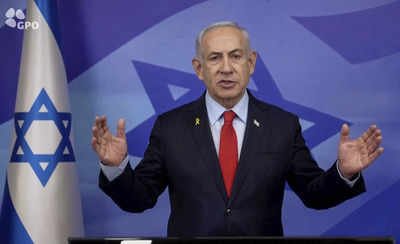A US-brokered ceasefire Israel and Lebanon’s Hezbollah have received support from Israeli leaders, signaling a possible end to more than a year of cross-border fighting. Hezbollah leaders have also expressed tentative support for the deal, which marks a critical juncture in a conflict that has displaced millions and killed tens of thousands.
Terms of contract
The ceasefire, which began at 4 a.m. local time on Wednesday, includes a 60-day pause. Israeli troops are expected to withdraw from southern Lebanon, while Hezbollah is expected to withdraw its fighters north of the Litani River. Thousands of Lebanese troops and UN peacekeepers are to be deployed in the region to ensure compliance.
President Joe Biden described the deal as a “permanent cessation of hostilities”, with a US-led international panel overseeing its implementation. However, Israel insists on retaining the right to act if Hezbollah violates the terms. Israeli Defense Minister Israel Katz warned of military action if UN forces fail to effectively implement the agreement.
Hezbollah’s conditional support
Mahmoud Kamati, Hezbollah’s deputy political leader, expressed cautious optimism, stressing the need for clarity and assurance from Israel. “We want an end to aggression, of course, but not at the expense of the sovereignty of the state of Lebanon,” Kamati told Al Jazeera.
The EU’s foreign policy chief, Josep Borrell, noted that the deal addresses Israel’s security concerns while offering a path to de-escalation.
Effect of fighting
The conflict has caused great havoc. Israeli airstrikes killed more than 3,700 Lebanese, many civilians, while Hezbollah rockets displaced tens of thousands of people in Israel. The terrorist group suffered significant losses, including the killing of its leader Hassan Nasrallah and other top commanders.
For Israel, the ceasefire provides relief for its army, which is stationed in Gaza. Hezbollah, despite its resistance, faces scrutiny for linking Lebanon’s future to Gaza and exacerbating its already dire economic crisis.
Gaza conflict remains unresolved
Despite the agreement, the situation in Gaza remains critical. Hezbollah’s initial involvement was linked to Hamas’s October 2023 attack on Israel, which sparked the war in Gaza. Israel’s ongoing military campaign in Gaza has killed more than 44,000 Palestinians but the release of Israeli hostages held by Hamas has yet to be secured.
Palestinian Authority President Mahmoud Abbas highlighted the wider stakes of the conflict, urging international intervention to resolve the Palestinian question as a path to lasting peace.
“The only way to stop the dangerous escalation… is to resolve the question of Palestine,” Abbas said in a speech to the UN.
As the ceasefire comes into effect, it offers a fragile relief, but remains far from resolving the region’s deep tensions.

The Israel-Hezbollah Ceasefire: What It Means for Lebanon’s Future
In this screen grab image from a video provided by the Israeli government press office, Israeli Prime Minister Benjamin Netanyahu delivers a televised statement. (AP)
